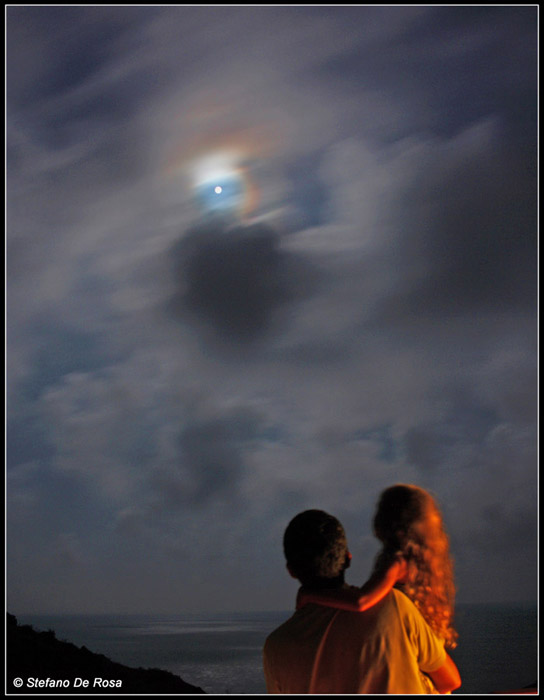Difference between revisions of "August 25, 2010"
| Line 3: | Line 3: | ||
<!-- ws:start:WikiTextHeadingRule:1:<h1> --> | <!-- ws:start:WikiTextHeadingRule:1:<h1> --> | ||
<!-- ws:start:WikiTextLocalImageRule:16:<img src="/file/view/LPOD-Aug25-10.jpg/158173079/LPOD-Aug25-10.jpg" alt="" title="" /> -->[[File:LPOD-Aug25-10.jpg|LPOD-Aug25-10.jpg]]<!-- ws:end:WikiTextLocalImageRule:16 --><br /> | <!-- ws:start:WikiTextLocalImageRule:16:<img src="/file/view/LPOD-Aug25-10.jpg/158173079/LPOD-Aug25-10.jpg" alt="" title="" /> -->[[File:LPOD-Aug25-10.jpg|LPOD-Aug25-10.jpg]]<!-- ws:end:WikiTextLocalImageRule:16 --><br /> | ||
| − | <em>image by [mailto:stefanoderosa66@gmail.com | + | <em>image by [mailto:stefanoderosa66@gmail.com Stefano De Rosa]</em><br /> |
<br /> | <br /> | ||
Stefano and his daughter are big fans of the full Moon. The Moon itself has been considered a daughter of the Earth. In the 1960s, before Apollo began to provide other evidence, a major theory was that the Moon broke off the Earth, with the early Earth's rapid rotation oozing off crustal material that the Moon formed from. In this model, the Moon was made of terrestrial mantle material, an offspring of Mother Earth. But Apollo showed that Moon rocks were strongly depleted in volatiles, inconsistent with the traditional fission model of its formation. Elements of the daughter model survive in the current Big Splash theory, with the kick start (and a free parameter) of a giant impact providing the heat to eliminate volatiles. <br /> | Stefano and his daughter are big fans of the full Moon. The Moon itself has been considered a daughter of the Earth. In the 1960s, before Apollo began to provide other evidence, a major theory was that the Moon broke off the Earth, with the early Earth's rapid rotation oozing off crustal material that the Moon formed from. In this model, the Moon was made of terrestrial mantle material, an offspring of Mother Earth. But Apollo showed that Moon rocks were strongly depleted in volatiles, inconsistent with the traditional fission model of its formation. Elements of the daughter model survive in the current Big Splash theory, with the kick start (and a free parameter) of a giant impact providing the heat to eliminate volatiles. <br /> | ||
<br /> | <br /> | ||
| − | <em>[mailto:tychocrater@yahoo.com | + | <em>[mailto:tychocrater@yahoo.com Chuck Wood]</em><br /> |
<br /> | <br /> | ||
<strong>Technical Details</strong><br /> | <strong>Technical Details</strong><br /> | ||
| Line 13: | Line 13: | ||
<br /> | <br /> | ||
<hr /> | <hr /> | ||
| − | <div>You can support LPOD when you buy any book from Amazon thru [http://www.lpod.org/?page_id=591 | + | <div>You can support LPOD when you buy any book from Amazon thru [http://www.lpod.org/?page_id=591 LPOD!]<br /> |
</div> | </div> | ||
---- | ---- | ||
===COMMENTS?=== | ===COMMENTS?=== | ||
| − | + | Register, and click on the <b>Discussion</b> tab at the top of the page. | |
Revision as of 17:23, 11 January 2015
Daughter Moon

image by Stefano De Rosa
Stefano and his daughter are big fans of the full Moon. The Moon itself has been considered a daughter of the Earth. In the 1960s, before Apollo began to provide other evidence, a major theory was that the Moon broke off the Earth, with the early Earth's rapid rotation oozing off crustal material that the Moon formed from. In this model, the Moon was made of terrestrial mantle material, an offspring of Mother Earth. But Apollo showed that Moon rocks were strongly depleted in volatiles, inconsistent with the traditional fission model of its formation. Elements of the daughter model survive in the current Big Splash theory, with the kick start (and a free parameter) of a giant impact providing the heat to eliminate volatiles.
Chuck Wood
Technical Details
August 24, 2010 at 11.46 p.m. (local time). Canon Eos 1000d; Exp: 10 seconds; F/5.6; ISO 100; focal lenght: 18mm, from Isola d' Elba (Italy)
COMMENTS?
Register, and click on the Discussion tab at the top of the page.



